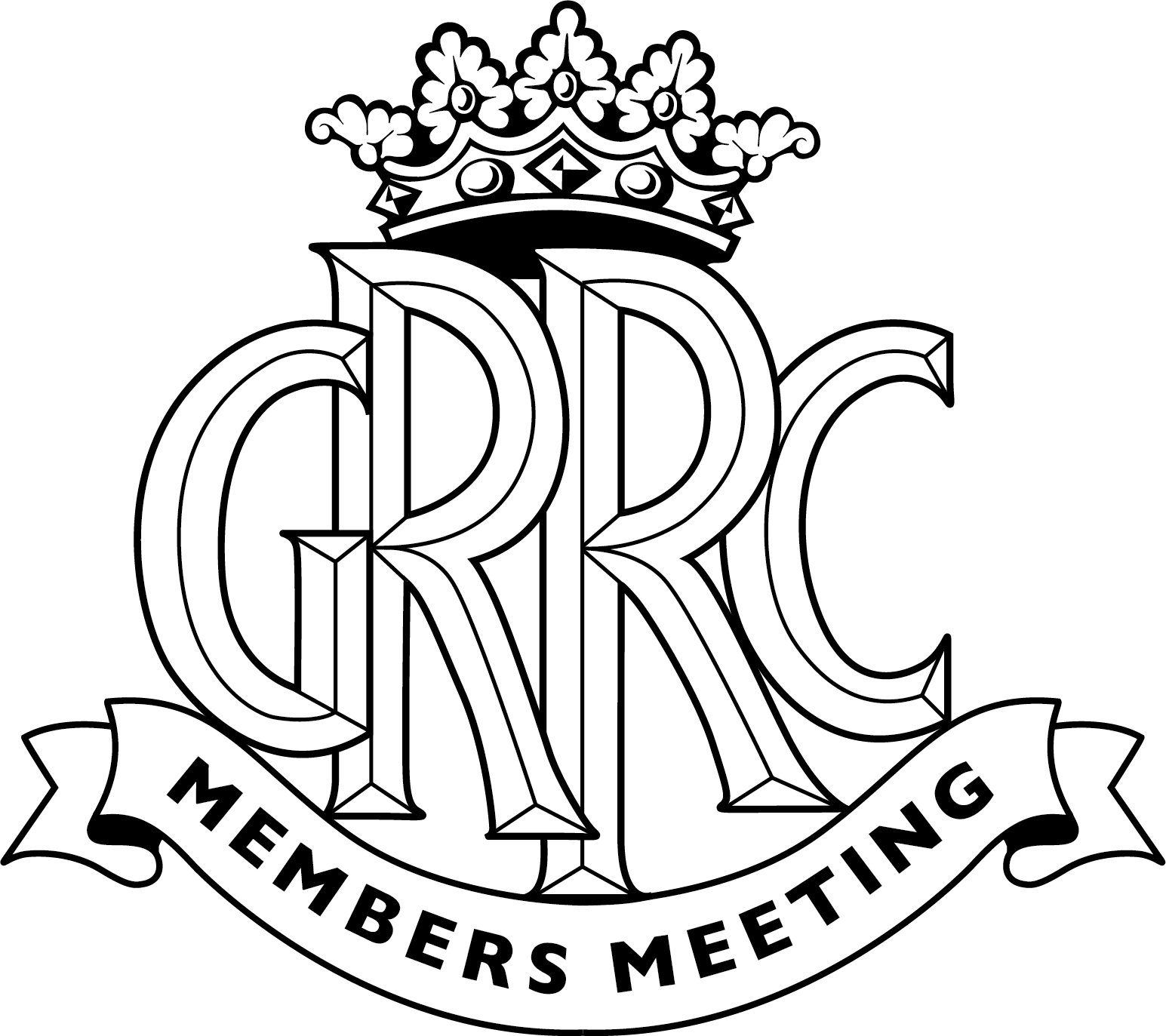What did Tony Brooks think of Stirling Moss? | Thank Frankel it's Friday
 Andrew Frankel
Andrew Frankel
In a fraction over two years, we have lost two of the greatest drivers this country has ever produced, both at the age of 90. Sir Stirling Moss died in April 2020, and now Tony Brooks has joined him at the great Flugplatz in the sky. Today the oldest person alive to know what it is like to win a Grand Prix is Jackie Stewart, who took his first in 1965, a full decade after a young dental student called Charles Anthony Standish Brooks travelled to Syracuse to compete in his first-ever F1 race and promptly went and won it. Now that he has gone, there are few indeed left who can even describe what it was like to be in a Formula 1 race in the late 1950s or early 1960s, and precisely none who knows what it was like to win one. With their passing, an entire era has passed from living memory to historical document.

So what did they think of each other? Because I knew Stirling well, I was always aware of how high in his estimation Brooks ranked, up there among the very best, clearly beaten by Fangio alone, whom Stirling regarded as unapproachable. But what did Tony think of Stirling? A few years ago I sat down with him and asked him exactly that.
Together both at Vanwall at Grand Prix level and at Aston Martin for sportscar racing, Brooks’ appreciation of Moss said perhaps as much about Tony as it does his subject. Analytical, intelligent and unsentimental, Brooks’ perspective was not only that of someone who was there but also of one of only a handful able to keep up with the Boy Wonder. Affectionate but not uncritical, appreciative but not slavish, what follows are the views of a man who won at Spa, Monza, the Nurburgring and the Avus, otherwise known as the most frightening, dangerous and difficult places you could race a car. They are illuminating, to say the least.

"If there is one aspect that made Stirling Moss the best team-mate I ever had, it was his sheer, unadulterated competitiveness. He was always flat-out. While someone like Fangio – the only driver I saw with a talent that exceeded Stirling’s – would deliberately keep something in reserve on the early laps until he found out what the track conditions were like, Stirling was gone. He loved to lead, loved to build a gap to the next man so discouraging he might feel it not worth pursuing. It didn’t matter what car he was in, Stirling was always fast, always competitive, always aggressive in an entirely constructive sense.
"Even though I never asked Stirling for any advice and he never offered any, I learned a huge amount just because my team-mate was the best and therefore offered the ultimate benchmark. When I joined Vanwall in ’57, I had no idea where I was relative to the competition. Realising that on my day I could keep up with Stirling gave me a great deal of confidence.
"That said, we went about our driving in very different ways. I preferred to be smooth at all times whereas Stirling perhaps fought the car a little more. He was also a very late braker, and doubtless pulled out some time over me in this area and perhaps helps explain why he was absolutely at his best on slow and medium speed circuits like Monaco and the Nürburgring, while my best performances were on the quicker tracks. He also appreciated the time gained by changing gear quickly. Formula 1 teams today spend millions trying to shave fractions off their change times, but I’d change gear pretty normally. And while on the one hand, Stirling changed gear more quickly than me, at Spa in 1958 he missed a gear on the first lap and blew the engine.
"However I think the real essence of Stirling’s approach, and where it was so different to mine, was that he was happy to live in that little area right on the outside of the envelope and I never was. He’d examine tracks in great detail, working out where he could have a go and get away with it if it went wrong, and I’d never do that. He was one of those drivers who’d mentally force themselves to do things they didn’t really want to do because he was driven by this massive competitive spirit. By contrast, I knew absolutely what was comfortable for me and never felt the need to push myself beyond it. Given the way he drove, there is perhaps no greater tribute to Stirling’s talent than the fact that he had so few accidents other than those caused by mechanical failure. Others who pushed themselves that hard but did not perhaps have Stirling’s skill ended up paying an unacceptable price."

"That said, Stirling never won the World Championship when other team-mates of mine did and, oddly enough, I think his rampant competitiveness was instrumental in denying him the title his talent so richly deserved. He was never content with simply being the best driver. He had to have the best machinery too, and as number one driver, he could pick and choose. Unlike today, two seemingly identical Grand Prix cars could then be very different under the skin and he’d try my engine in his chassis, his engine in my chassis, fiddling with this, fiddling with that. It was his right as the top driver in the team, but even if you have the most skilled mechanics, the more often you pull a car apart and rebuild it, the more likely it is that something will go back in not quite right. It was his perfectionism that drove it, and it was that which is also what explains at least in part why he was never champion.
"Also, while Stirling never gave less than 100 per cent of himself to any race, so he also expected the same of his machinery. I’m not saying he was a car breaker or mechanically unsympathetic, but his policy of going flat out from the flag meant that if there was a weakness somewhere, he’d increase his chances of finding it compared to someone without quite the same uncompromising attitude
"Then again, another reason he never won the World Championship was his punctilious sportsmanship. When Mike Hawthorn spun in Portugal in 1958 and they were going to disqualify him for driving against the flow of traffic, it was Stirling who spoke up in his defence and got him reinstated. Mike earned seven points for his second place that day, and beat Stirling to the title by just one… But that was pure Stirling – he could have so easily said nothing and become champion, but it would have been the wrong thing to do."

"He was the same on the track. Because I was his number two and I would never commit the cardinal sin of taking off my team-mate, I never got into a competitive situation with him in a Vanwall, but I watched him a lot and raced hard against him in other years and I never saw him do anything that was not completely correct, nor did I hear anyone else complain about anything Stirling did on the track. He was tough for sure but absolutely fair.
"Stirling was the kind of racer who would never give up and I have often wondered what would have happened to him had his accident at Goodwood in ’62 not forced him to retire. And I have no doubt that crash saved his life. The cars were getting no safer. He’d have kept going and going until, one day sooner or later, the law of averages caught up with him. When I retired at the end of 1961, I took the literal definition of retirement, whereby you cease to do that which you have been doing. I started a family and while I hugely enjoyed my time in racing, it was not worth risking my life for anymore. For Stirling, racing was life."
The tape ends there but, as I was leaving Tony gently took my arm and said, ‘do you know, Andrew, Stirling and I first became team-mates in 1956. And in all that time, we’ve never had a single argument. How many team-mates can say that?’ All too few, I suspect.
Joint images courtesy of Motorsport Images, Brooks image by Drew Gibson, Moss image by Adam Beresford
Thank Frankel it's Friday
Tony Brooks
Stirling Moss

Historic
Vanwall deserves a comeback – Thank Frankel it’s Friday

Andrew Frankel
Thank Frankel it’s Friday: Stirling Moss, a funny, kind and generous hero

Andrew Frankel
Thank Frankel it's Friday: Chris Bristow, the talent robbed of his chance to flourish


































































